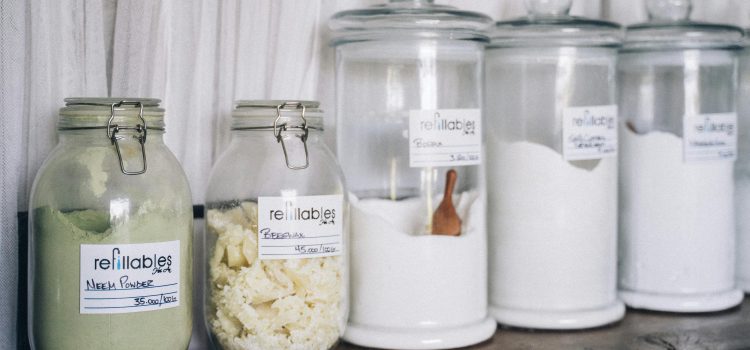
How to Store Food Properly to Reduce Waste
Food waste is a significant issue around the world. Each year, millions of tons of food are discarded, contributing to environmental problems and lost resources. One effective way to address this problem is by learning how to store food properly. Proper food storage not only helps to reduce food waste but also keeps your food fresh for longer. In this article, we’ll explore useful food storage tips that can help you maximize the life of your food and minimize waste.
1. Understand the Importance of Proper Food Storage
Before diving into specific storage methods, it’s important to understand why storing food properly matters. Proper storage prevents food from spoiling prematurely and helps to maintain nutritional value, taste, and texture. When food is stored incorrectly, it can quickly deteriorate, leading to mold, spoilage, and wastage.
Key Benefits of Proper Food Storage:
- Prevents food from spoiling quickly.
- Keeps food fresh and nutritious for longer.
- Reduces the likelihood of foodborne illnesses.
- Saves money by reducing the need to buy food frequently.
By following the right storage practices, you can ensure your food stays fresh and safe to consume.
2. Use the Right Storage Containers
The type of container you use for storing food can greatly impact its shelf life. Using proper containers can keep food fresh for longer, prevent contamination, and reduce the risk of spoilage.
Best Storage Containers:
- Glass containers: Ideal for storing leftovers or bulk items. They’re non-toxic, reusable, and help keep food fresh.
- Airtight plastic containers: Useful for storing dry foods like grains, cereals, and snacks. Make sure the containers are sealed properly to prevent air and moisture from entering.
- Vacuum-sealed bags: Great for storing meat, cheese, and vegetables. Vacuum sealing removes air, helping to preserve food longer.
- Reusable silicone bags: A sustainable alternative to plastic bags, perfect for snacks or portioned meals.
Using the right storage containers can help you reduce food waste by keeping food fresh and organized.
3. Refrigerating and Freezing Food Properly

Refrigeration and freezing are two common methods for preserving food. However, it’s important to store food correctly to prevent freezer burn, spoilage, or loss of flavor.
Refrigeration Tips:
- Keep your fridge at the right temperature: The ideal temperature for a refrigerator is between 37°F (3°C) and 40°F (4°C).
- Store raw meat separately: Keep raw meat in leak-proof bags or containers on the bottom shelf to prevent it from contaminating other foods.
- Don’t overcrowd the fridge: Allow air to circulate around food to maintain an even temperature.
Freezing Tips:
- Label frozen items: Always label food with the date of freezing so you know when it’s time to use it.
- Use freezer-friendly containers: Use freezer bags or airtight containers to protect food from freezer burn.
- Cool food before freezing: Let food cool down to room temperature before freezing to prevent condensation and ice crystals.
By following these food storage tips, you can ensure your food stays fresh for longer periods.
4. Keep Produce Fresh
Fresh fruits and vegetables can spoil quickly if not stored properly. To reduce food waste, it’s essential to know how to store produce in a way that extends its shelf life.
Produce Storage Guidelines:
- Keep fruits and vegetables separate: Some fruits, like apples and bananas, release ethylene gas, which can speed up the ripening of nearby vegetables. Store them separately to avoid premature spoilage.
- Use breathable bags for produce: Instead of plastic bags, use breathable cloth bags or perforated plastic bags to store fruits and vegetables. This helps maintain proper humidity levels.
- Refrigerate certain fruits and vegetables: Some produce, such as berries, grapes, and leafy greens, should be refrigerated to prevent spoilage. On the other hand, items like potatoes, onions, and tomatoes should be stored at room temperature.
Properly storing fruits and vegetables helps you keep them fresh and reduces unnecessary waste.
5. Dry Goods Storage
Dry foods like grains, pasta, and cereal are staples in most households. While these items have a long shelf life, they can still be susceptible to pests and moisture damage. Storing them properly is key to preventing waste.
Best Practices for Storing Dry Goods:
- Store in airtight containers: To keep dry foods fresh and safe from pests, store them in airtight containers made of glass, plastic, or metal.
- Use moisture-proof bags: Store dry grains and legumes in moisture-proof bags to prevent them from absorbing humidity.
- Keep in a cool, dark place: Store dry goods in a pantry or cupboard away from sunlight and heat sources to maintain freshness.
By properly storing dry foods, you can enjoy them for a long time without worrying about spoilage.
6. Be Mindful of Expiry Dates
While proper food storage can extend the life of your food, it’s still important to pay attention to expiry dates and use food before it goes bad. Keeping track of expiry dates helps you avoid wasting food that is no longer safe to eat.
Tips for Managing Expiry Dates:
- Use a “first in, first out” (FIFO) system: When stocking your fridge or pantry, place older items at the front so they are used first.
- Check expiration dates regularly: Make it a habit to check expiry dates on food labels before storing items.
- Don’t buy in excess: Only buy the amount of food you can realistically consume before it expires.
Tracking expiry dates ensures you consume food before it goes bad, helping you reduce food waste.
7. Store Leftovers Properly
Leftovers can be a great way to save time and money, but they must be stored correctly to avoid food spoilage. Improper storage can result in food that’s unsafe to eat and contributes to food waste.
Leftover Storage Tips:
- Cool leftovers quickly: Avoid leaving leftovers out at room temperature for extended periods. Let them cool to room temperature before refrigerating or freezing.
- Use airtight containers: Store leftovers in airtight containers to keep them fresh and prevent contamination.
- Reheat safely: When reheating leftovers, make sure they reach the proper temperature (165°F or 74°C) to kill any harmful bacteria.
Properly storing leftovers ensures they stay fresh and safe for future meals.
8. Organize Your Pantry
A cluttered pantry can lead to forgotten food, resulting in waste. Properly organizing your pantry helps you keep track of what you have and reduces the likelihood of food spoilage.
Pantry Organization Tips:
- Group similar items together: Keep grains, canned goods, and snacks in separate sections for easy access.
- Label everything: Label containers with dates so you know when to use the items before they expire.
- Use clear containers: Using transparent containers allows you to quickly see what’s inside and check for freshness.
By organizing your pantry, you can avoid overbuying and reduce food waste.
Comparative Analysis Table: Proper Storage vs. Improper Storage
| Food Item | Proper Storage | Improper Storage |
|---|---|---|
| Fruits and Vegetables | Separate fruits and vegetables; refrigerate certain items | Store together; leave out at room temperature |
| Meat and Dairy | Store in airtight containers; refrigerate promptly | Leave in original packaging; store at room temperature |
| Dry Goods | Airtight containers; store in a cool, dry place | Leave in open bags; expose to moisture or heat |
| Leftovers | Store in airtight containers; refrigerate or freeze quickly | Leave at room temperature for too long |
| Pantry Items | Organize by type; label and date items | Disorganized; no labels or dates |
Conclusion

Storing food properly is a simple yet effective way to reduce food waste and save money. By following food storage tips, such as using airtight containers, refrigerating or freezing food correctly, and being mindful of expiry dates, you can extend the shelf life of your food and prevent unnecessary waste. Adopting these practices in your daily life not only helps your budget but also contributes to a more sustainable and responsible way of living.








